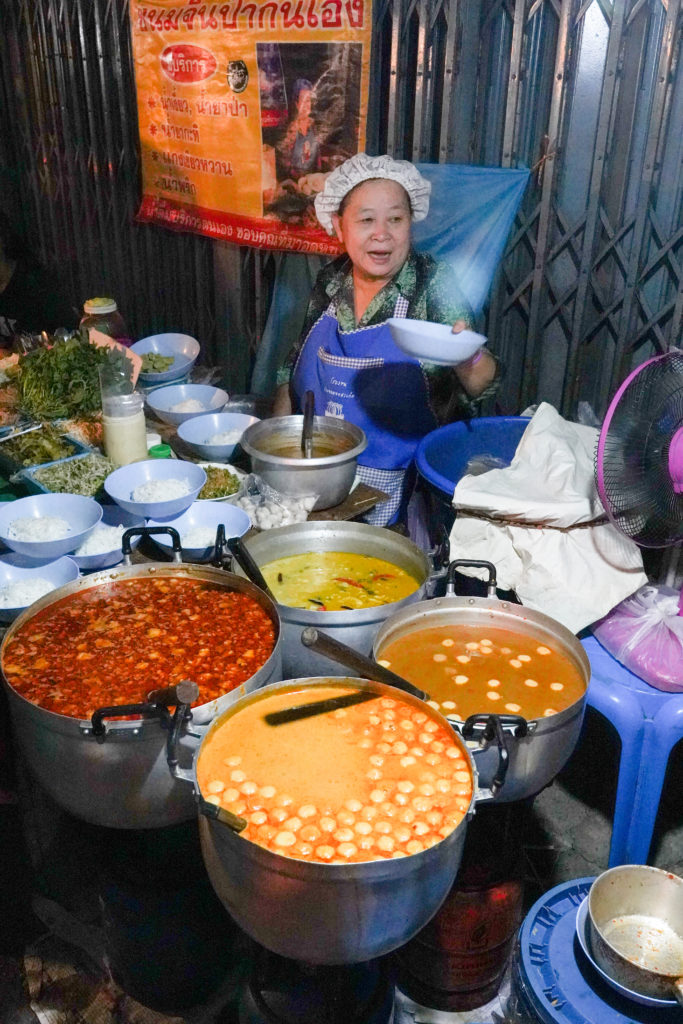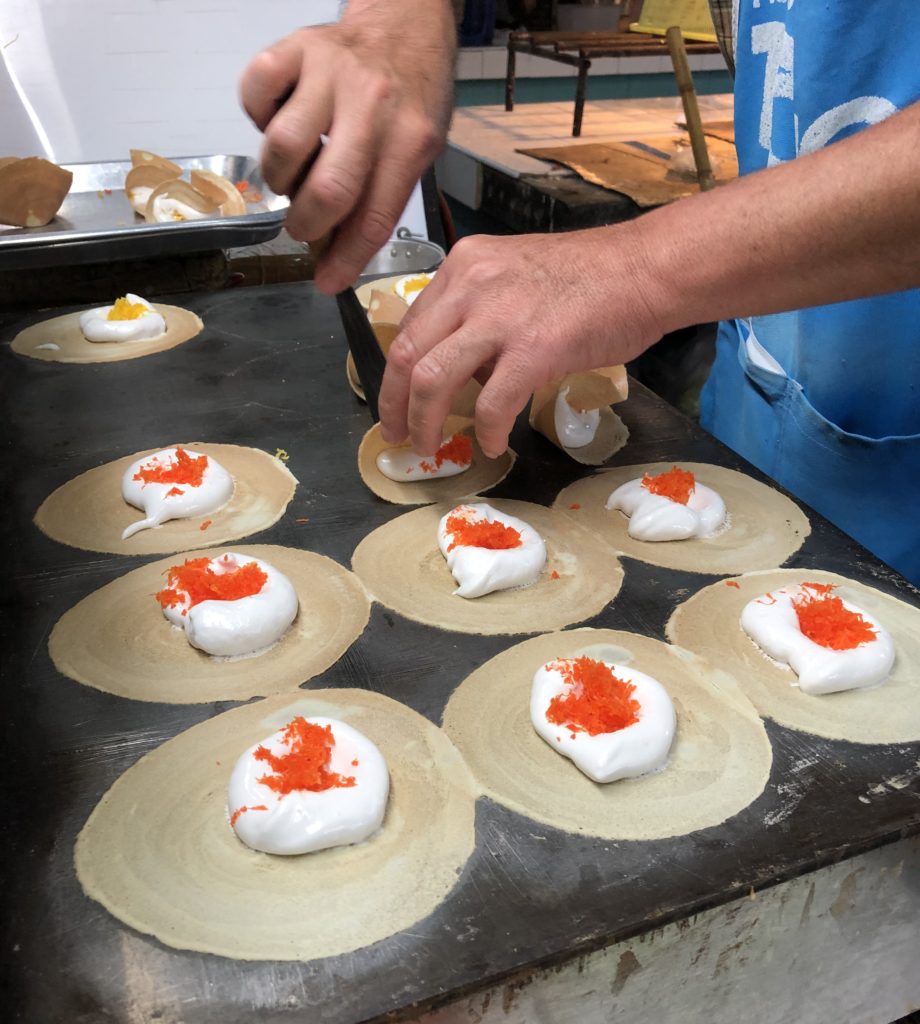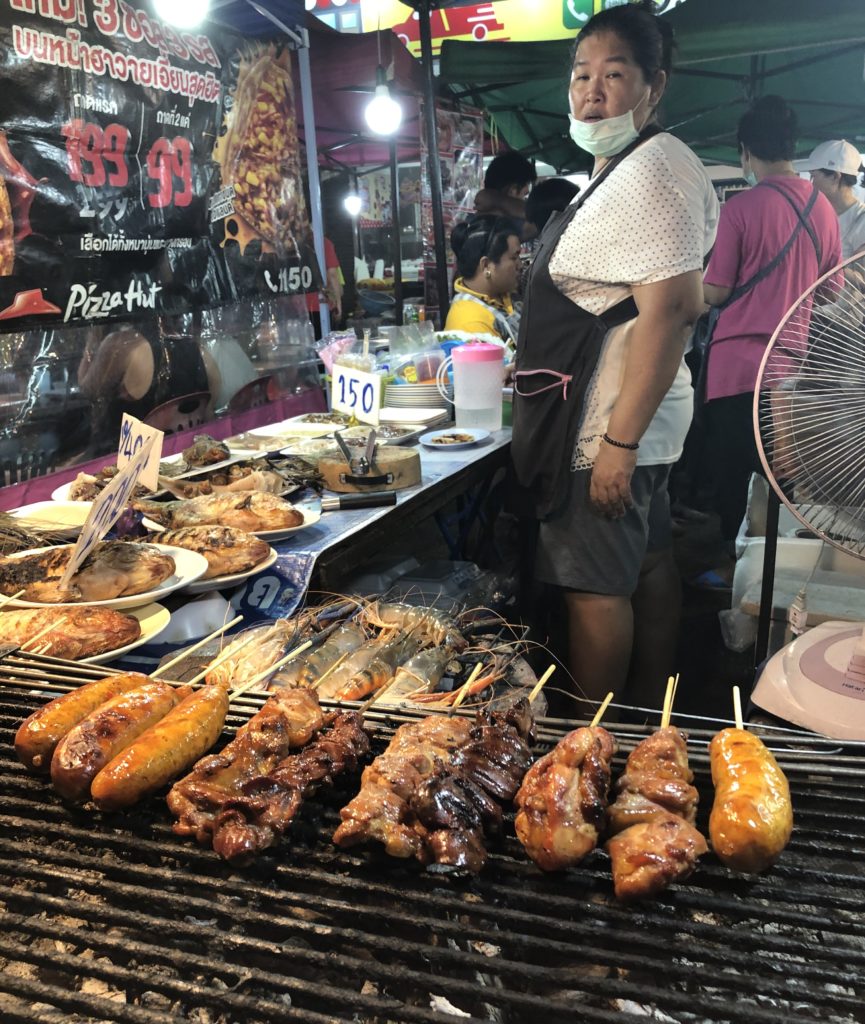
When I tell people I spent months in Southeast Asia to put together a street food guide the first question typically is “how many times did you get sick?” My response is this: I have devoured hundreds of things off the street in the past decade. I have never got sick from eating them. Not once. And no, I do not have an “iron” or “Asian” stomach. I have gotten sick numerous times eating in restaurants both at home and abroad.
But I have heard stories of people getting sick. Maybe you’ve just been lucky?
That may be part of it. But eating smart greatly reduces the risk. And many cities have cracked down on unsafe behavior in recent years so it’s probably safer than it one was. I follow a few basic rules when eating street food:

- First and foremost, look for places that are popular with locals. If someone is serving food in a totally unhygienic manner people will get sick and stop going there. Period. This is by far the most important rule and if a place is popular enough I may even break some of the other rules below and eat there. Note that this can be a struggle if you’re in an area that’s mostly filled with other tourists.
- Next look for foods that are fully cooked to order. You don’t know how long that chicken skewer has been sitting out or how many people have breathed on it, touched it, put money on it… you get the point. If it’s fully cooked in front of you there’s no need to worry about germs that accumulate on the open streets. On the rare occasions it comes out cold or pink in the middle, I just spit it out and throw the rest away.
- Eat things that are boiling. In Asia this mostly means curry and noodle soups. If something is sitting in a 200+ degree pot you can be sure no bacteria is growing on it. Watch out though – food can be served from these vats but not actually receiving heat. If the liquid doesn’t burn your tongue when it comes out, toss it.
- Avoid anything uncooked, especially vegetables. Yes that can make it hard to get your vitamins. But if you bought it on the street it has almost certainly been washed in tap water your stomach is not ready to handle. While the locals will get sick from rotten food just like you and I, they can tolerate the water so point one does not necessarily hold here. Fruits where you peel the skin off are generally safe.
- Following up with that, avoid anything with ice of unknown origin. You can ask whether the ice is made with purified water, but I wouldn’t necessarily trust an affirmative response. In Asia a lot of purchased purified ice is tubular shaped with a hole the middle which is a mold most people wouldn’t have lying around.
- When in doubt drink hard alcohol. It’s not scientifically proven but I like to think mixing a shot of Granddaddy’s cough syrup with a questionable meal will kill at least some of what’s in there
- If you do feel a rumble a few hours after eating, take some activated charcoal. This is what you’re given in poison control centers and it will usually clear you right out. Just don’t abuse it because it also can clear out the good bacteria floating down around there.
Okay so street food may be safer than I thought. But if I want to play it even safer I should just eat in restaurants right?

Ah this is where your Western sensibilities will fail you. Throughout my travels in Asia I have only gotten sick eating in restaurants. I have never seen a definitive answer on why this is the case but I have some theories.
First, if you think because you’re dining in a nice looking air conditioned restaurant they are adhering to a higher level of food hygiene you are dead wrong. As with everything from building codes to safety railings, standards are just more lax over here. Nobody is aiming to get you sick, but whereas a 0.01% chance is too high in the West, around 5% seems to be good enough in many developing countries.
So what does that mean? No one is coming to bust these guys for serving old chickens, cross contaminating food or not cleaning cutlery properly. That’s just how people live and it’s one reason everything is so damn cheap here. So yeah, you’re taking a risk no matter what.
The difference between restaurants and street food is that with street food the whole show plays out in front of you. You can see if the meat looks old, bare hands are touching prepared food or the plates aren’t getting washed properly. What happens behind the closed doors of an Asian kitchen on the other hand is anyone’s guess.
Also, street food vendors do not have refrigerators. That sounds bad right? Wrong. This means they need to buy basically every ingredient freshthe day they buy it. If that beef has been sitting overnight in 98 degree heat, everyone is going to know in about 2 seconds. If it’s been sitting in the fridge for 2 weeks and you don’t see it until its been cooked, you will only find out on the toilet a few hours later.
The other thing to consider is locals do not typically go for the air conditioned western style affairs. This is mainly because they tend to be a lot more expensive (though still cheap to us) and frankly not as good. Which means these restaurants are primarily serving a clientele that will not be repeat business. Do you think they are going to care as much if a few people end up spending the night in the bathroom if it means a higher profit margin?
What about high end restaurants in fancy hotels, surely those are safe?
It’s true that restaurant in Western chains like Marriott and Hilton are almost certainly more hygienic than the mom & pops. If you want to play it totally safe and have the budget for it, go ahead. But if you want to eat like a local and truly take in all that a country has to offer, you’re going to need to roll the dice and take to the streets.
Also worth noting: the worst case of food poisoning I ever had (8 days!) came from a burger in a four star Nairobi hotel. So you can never be 100% sure. Why not accept a little risk and make the most of your trip?

